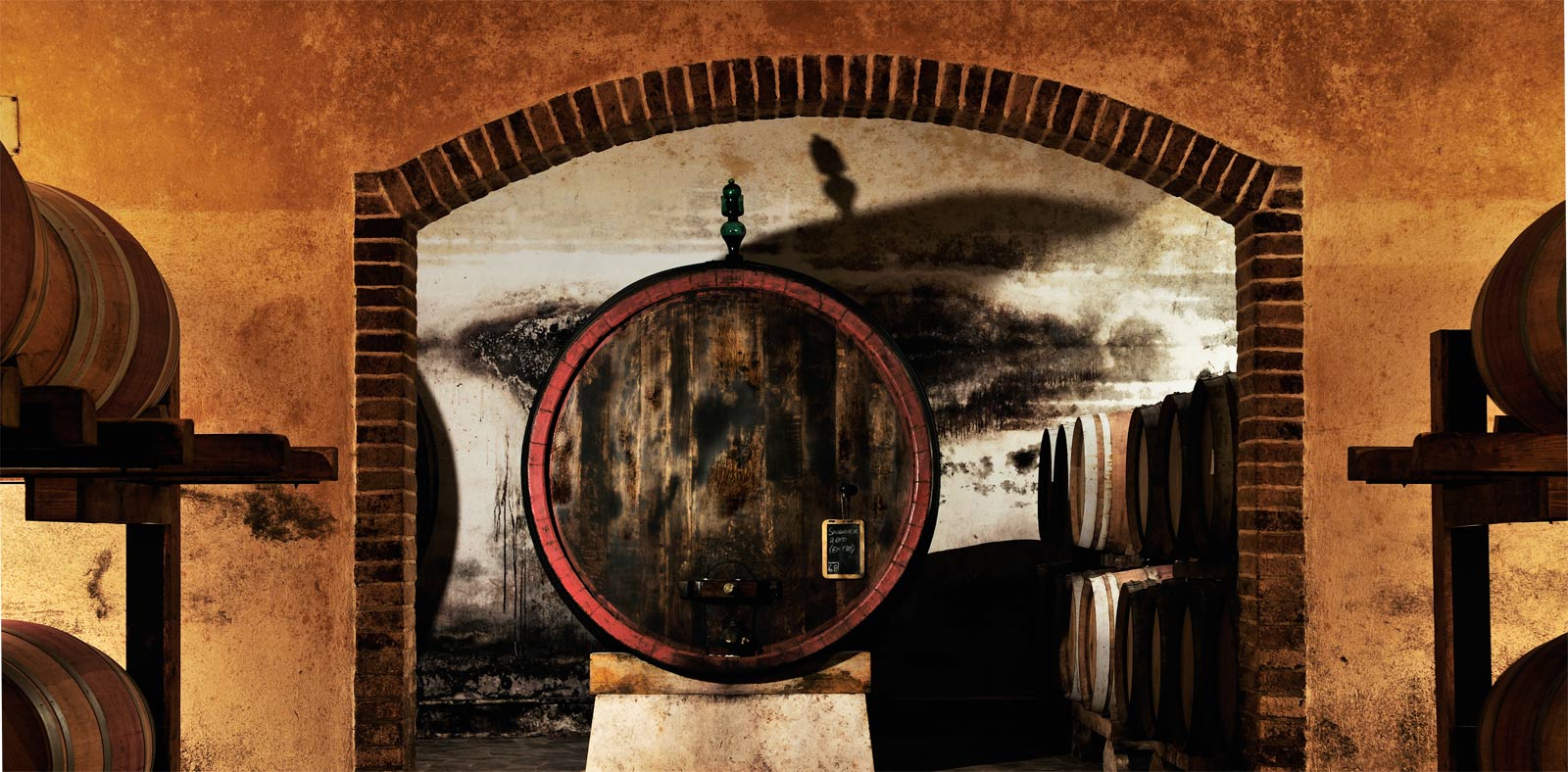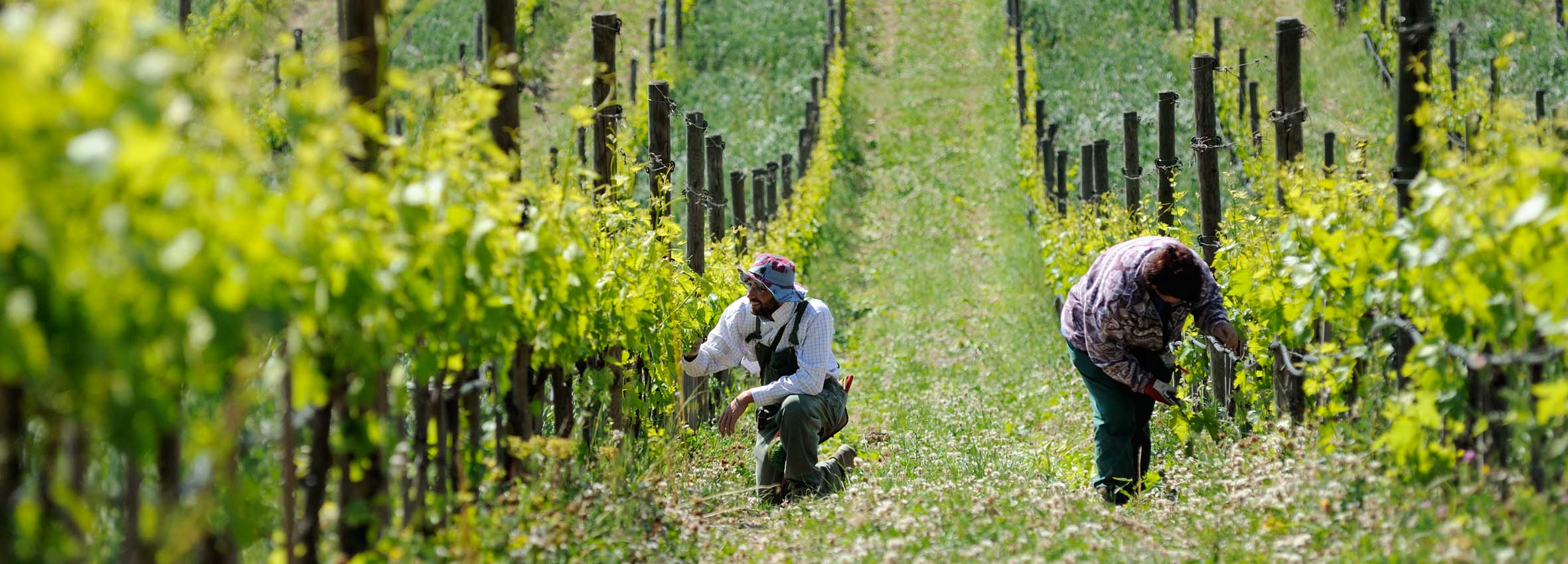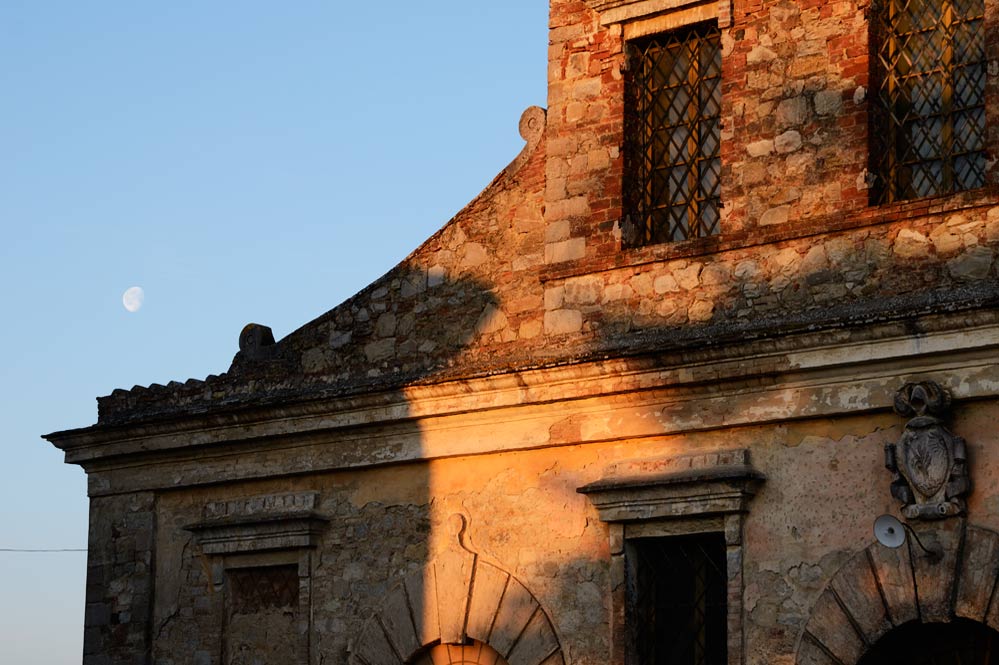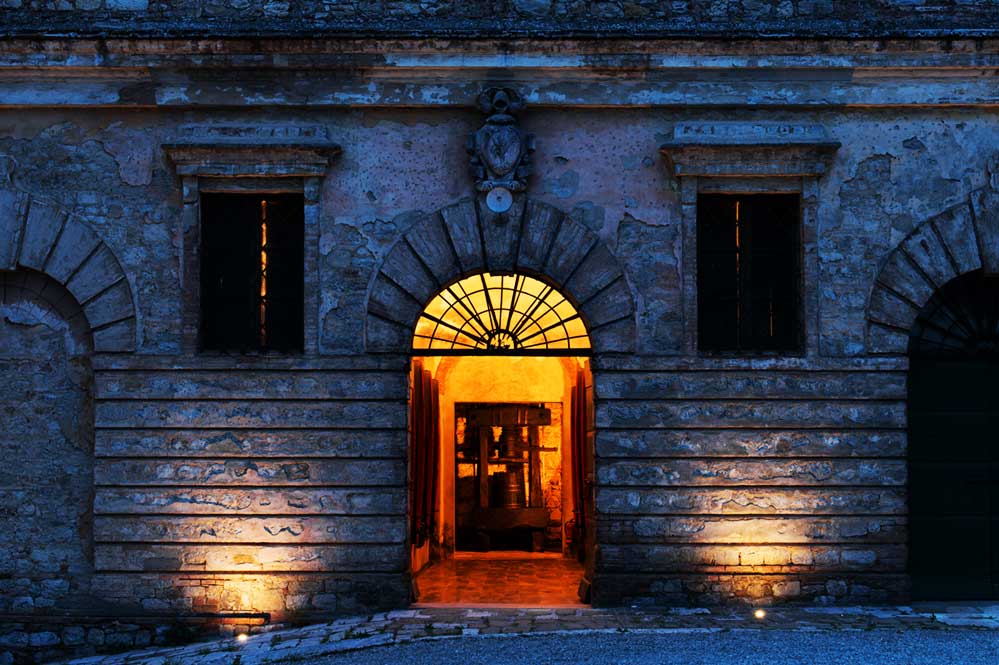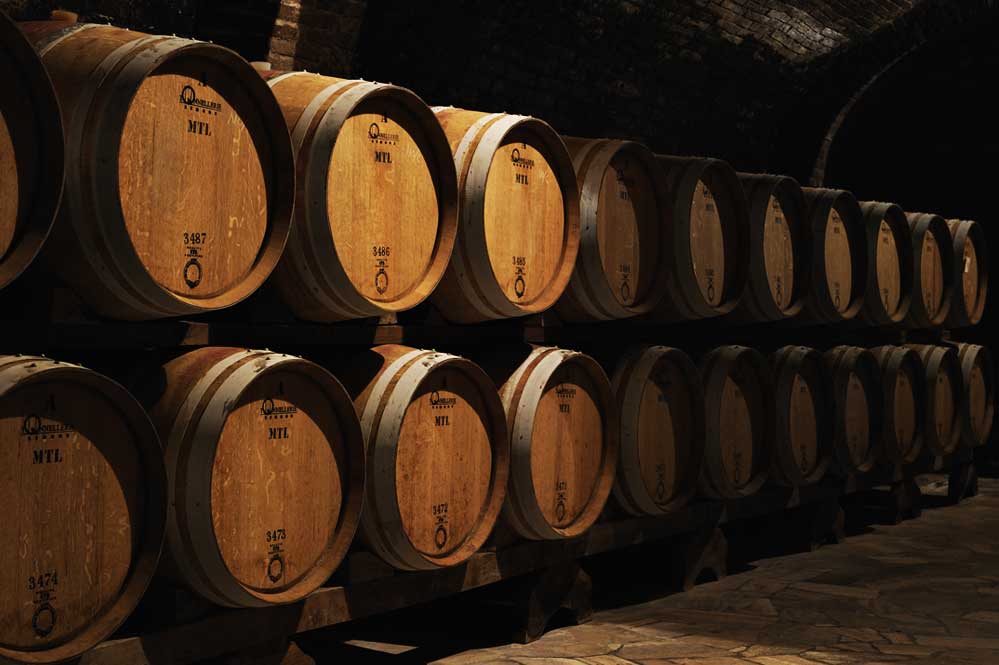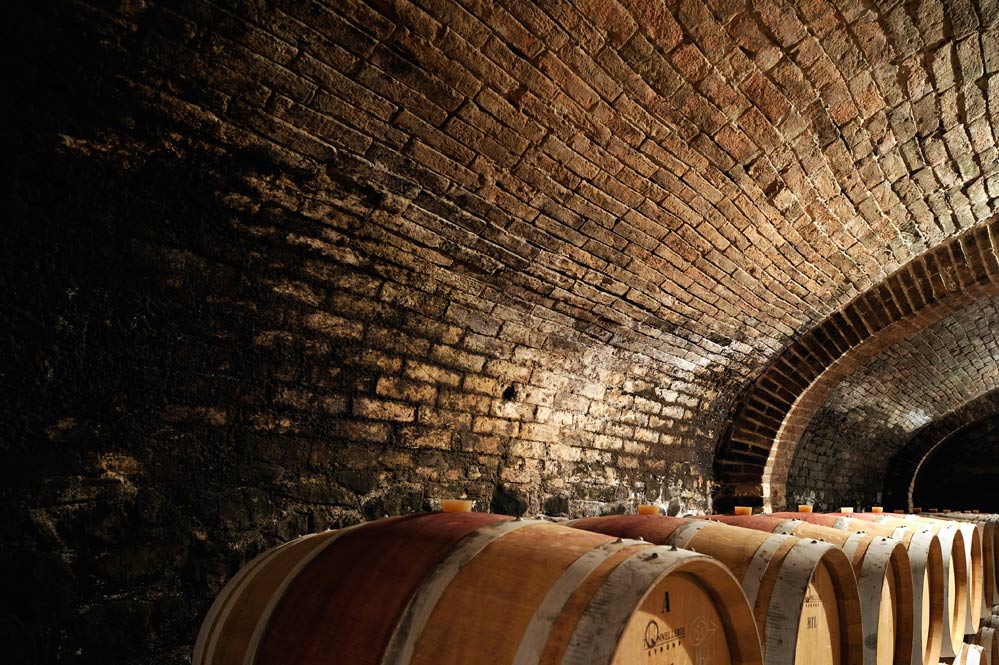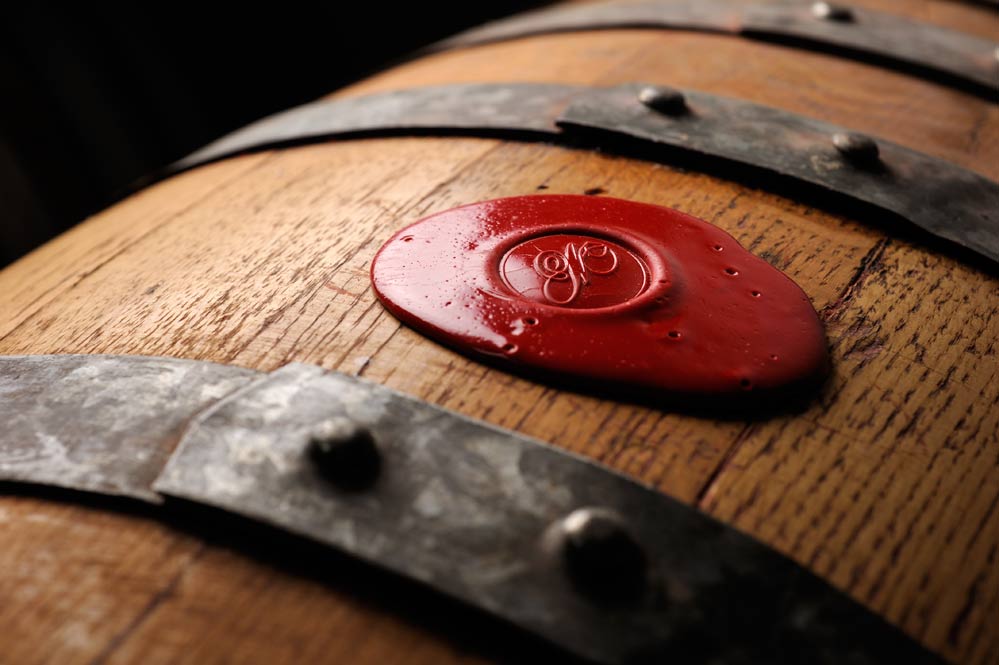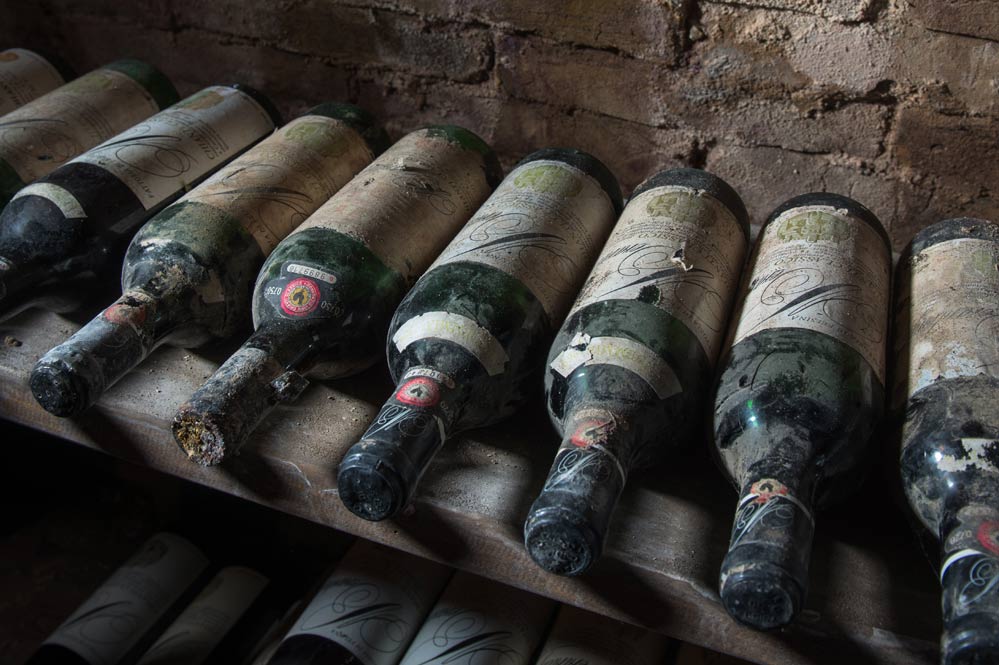It was 1966 when Domenico Poggiali Fèlsina took the courageous leap and bought the estate at a time when Italian viticultore was struggling. He chose to invest in the quality of the wine and the expertise of a young team.
Their passion for wine united with the skills of businessmen, and under their guidance, they injected modernity into their business plan, without however, abandoning the spirit of tradition. In the space of a few years, the vineyards grew to more than forty hectares, and the soul and organization of the company changed, as well.
In the second half of the 1970s Giuseppe Mazzocolin entered the family business with the task of commercial development.
His studies in the Humanities, his wealth of contacts, his elevated work ethic and his respect for Tuscan and Italian culture constitute the foundation for the growth of the Fèlsina winery, paving the way for the beginnings of their international recognition.
Their friendship with Luigi Veronelli and collaboration with oenologist Franco Bernabei shaped a developmental strategy that has proven itself extremely coherent starting with the wines of 1983, the first year of Fontalloro and of Rancia, up to the present day. With Domenico and Giuseppe Poggiali at the helm, an extraordinary development began which, since 1990, also includes Giovanni Poggiali, the oldest of Giuseppe’s three sons.
The estates of Fèlsina, developed over more than a thousand years, still represent the basic drive of our work culture, despite the post-WWII exodus from the countryside by sharecropping families. The farms remain the same: Rancia, Rancino, Arcidosso, Arcidossino/Santa Letizia, Casale di Fèlsina, Fèlsina, Casalino, Santa Maria, San Giuseppe, Ruzzatoio, Molino d’Ombrone, Valli, Molinuzzo, Terra Rossa.
Like all good farmers, our main concern is to protect the soil’s natural fertility, which we strive to do by keeping an open mind to new techniques, avoiding excess, and working in an experimental environment that embraces biodynamic production through the most modern technologies and innovations available worldwide.
Vine cultivation is used to obtain the best, mature grapes from a morphological and physiological point of view, and then transform them into wines that express the Fèlsina style.
For decades, mass selections have been cultivated as in no other place, producing numerous Sangiovese clones and rootstocks, allowing us to have an infinite palette of nuances and possibilities, much like a painter has infinite shades to work with.
An enterprise the size and diversity of Fèlsina holds a profound responsibility not only to the vineyards it runs, but to preserve the ecosystem and natural environment, keeping the human and technological impact in check.
Woods, cereal-sown fields, olive groves, ditches and streams, smaller fields for cultivated and wild herbs and medicinal plants like alfalfa, sorghum, millet, sunflower, field beans, all contribute to the preservation of biodiversity.
A true and authentic agricultural establishment, Fèlsina’s activities are centered around wine and olive oil. Since 2002 we have undertaken the project “Oil according to Veronelli” seeking to match the olive tree to its land, oil olive to its grove, following the same philosophy of terroir used for wine. The three production areas -Fèlsina, Pagliaresi and Boschi – havedistinct terroirs for each of the four olive varieties – Pendolino, Leccino, Moraiolo and Raggiolo (Correggiolo). The result is a unique oil reflecting the characteristics of each olive variety, assuring traceability throughout the production chain, from cultivation throughout processing, accompanied by constant testing and tasting.
THE CELLARS
In 1966, Domenico Poggiali found a cellar set into the tufa hills of his estate. It was small, built of stone with a wide brick vault. Construction of an underground wine cellar connecting with the old stables, once home to fine horses, was completed in the early 1970s and is still used for aging.
In 1998, Giovanni and his father Giuseppe Poggiali introduced new technology into their winemaking techniques — stainless steel — instrumentation that allows more precision for winemakers and cellar masters. With this innovation, tradition is maintained and renewed, while remaining faithful to the values that characterize Fèlsina’s production: balance, consistency and style.
The great transformation of vinification and aging techniques and collaboration with laboratory technicians has not changed the heart of the winemaker. Guarding his wines, meticulous and careful, the same man whose job is quieter and introverted in the winter takes center stage during spring and summer.
The magic of harvest time, when the ripe grapes are plucked row by row and taken to the cellars, is the culmination of the work and lives of the farmers who have prepared the ground, planted and nurtured, feeding, cultivating, working the land, with great balance and respect, to preserve nature’s gift of perfection.





